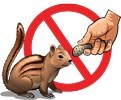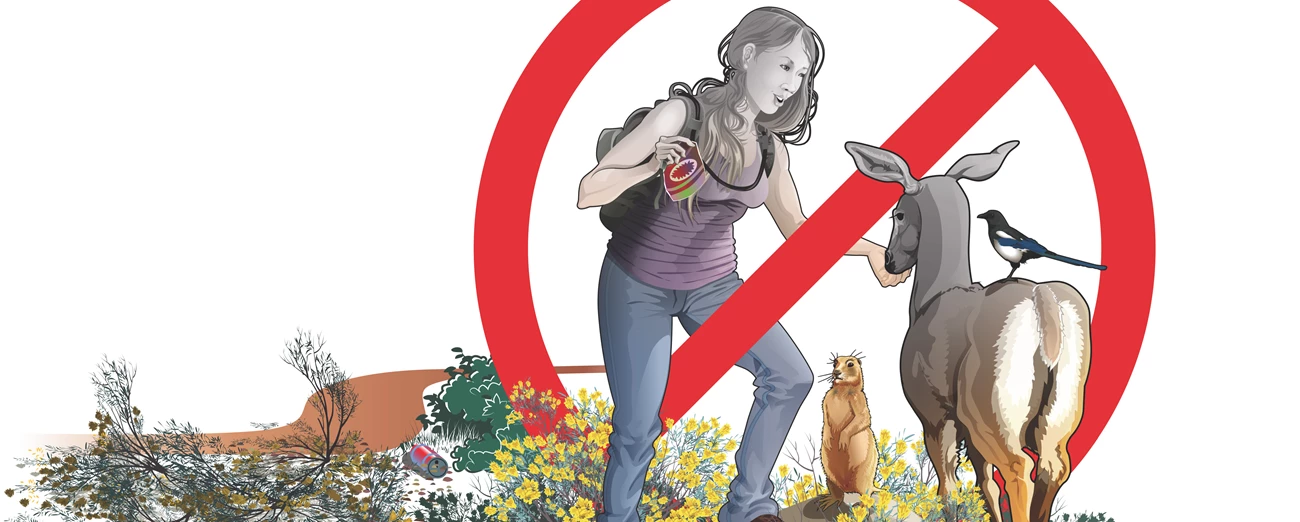Last updated: December 5, 2018
Article
Are You An Animal Lover?

Artwork Brian Roanhorse/NPS
Feeding wildlife is actually a form of animal cruelty. Animals that are fed by humans learn to frequent roadsides and parking lots, dramatically increasing their chances of being run over by a careless motorist. Most animals have very specific natural diets and therefore specific kinds of digestive bacteria. Being fed human food causes the wrong type of bacteria to become dominant in their stomachs. Soon these animals are no longer able to digest their natural foods. They end up starving to death with stomachs full of what they should have been eating all along. What could be crueler?
Fed animals also pose a threat to humans. Feeding rodents is especially dangerous because they can transmit diseases deadly to humans, such as Bubonic Plague and Hantavirus. Simply putting yourself within flea-jumping distance (up to 10 feet or 3 meters) of a rodent puts you at risk of contracting one of these diseases. Furthermore, the majority of national park visitors who suffer rodent bites report that they weren't even offering the animal any food--they were simply extending an empty outstretched hand to lure the animal closer. But because the rodent is so accustomed to a piece of food being at the end of an outstretched hand, they often bite the hand thinking it's food.
Leaving scraps behind when picnicking, not securing food in approved containers, and careless littering can be just as harmful as feeding an animal by hand. Normally docile animals that become accustomed to frequenting busy areas lose their natural wariness for people and can become dangerously aggressive. A young mule deer buck gored and killed a small child in a Yosemite campground when the boy refused to relinquish his sandwich to the deer. Even though he was doing the right thing, that child died a senseless death because too many people mistakenly thought, "feeding wild animals doesn't really do any harm”. And in many alreaday tragic cases, normally docile animals are euthanized for the safety of future visitors.
Please be a true friend of wildlife and keep your food and fingers to yourself.

Artwork Brian Roanhorse/NPS
